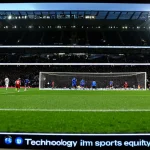Immediate Steps to Integrate Sustainability in UK Real Estate Development
Starting early is crucial for successful sustainable real estate UK projects. From project inception, developers should embed sustainability practices such as assessing environmental impact and setting clear green goals. Early-stage planning allows for smooth integration of sustainable features and avoids costly retrofits later.
Engaging all stakeholders from the beginning enhances commitment and helps align objectives. Architects, engineers, contractors, and community members contribute valuable perspectives on sustainability options, ensuring better outcomes.
In parallel : How Will Recent Political Changes Impact the Daily Lives of UK Citizens?
Energy efficiency measures form a foundational pillar. Incorporating high-performance insulation, efficient heating systems, and smart lighting from the outset reduces operational emissions and energy costs. These sustainable development steps are both practical and compliant with UK regulations.
Focusing on site selection that supports biodiversity and minimizes resource use also pays dividends. Prioritizing renewable energy sources, water-saving fixtures, and waste reduction strategies boosts the real estate’s environmental performance. Altogether, integrating these approaches early creates a roadmap for measurable sustainability impact, positioning projects ahead of regulatory requirements and market expectations.
Have you seen this : How Can You Transform Small Spaces in UK Homes to Maximize Comfort?
Meeting and Exceeding UK Regulations and Standards
Achieving compliance with UK real estate sustainability regulations is essential for developers aiming to integrate sustainable real estate UK principles successfully. Key frameworks include Building Regulations Part L, which sets minimum energy efficiency requirements, BREEAM, the UK’s leading green building standard, and the emerging Future Homes Standard, which demands near-zero carbon emissions in new builds. These regulations form a baseline, but going beyond them can enhance project value and environmental impact.
How can developers exceed these standards? Implementing advanced insulation, renewable energy integration, and smart energy management systems surpasses minimal legal demands. BREEAM-certified projects often adopt these features to gain higher environmental ratings. Staying updated on government policy shifts ensures compliance and anticipates future requirements, avoiding costly retrofits.
Additionally, early alignment with green building standards UK fosters smoother approvals and better stakeholder confidence. Developers benefit from adopting best-in-class sustainability practices that position projects competitively in the market while meeting growing environmental responsibilities. Engaging with regulatory updates and employing sustainable development steps not only assures compliance but also secures long-term gains in real estate value and reputation.






